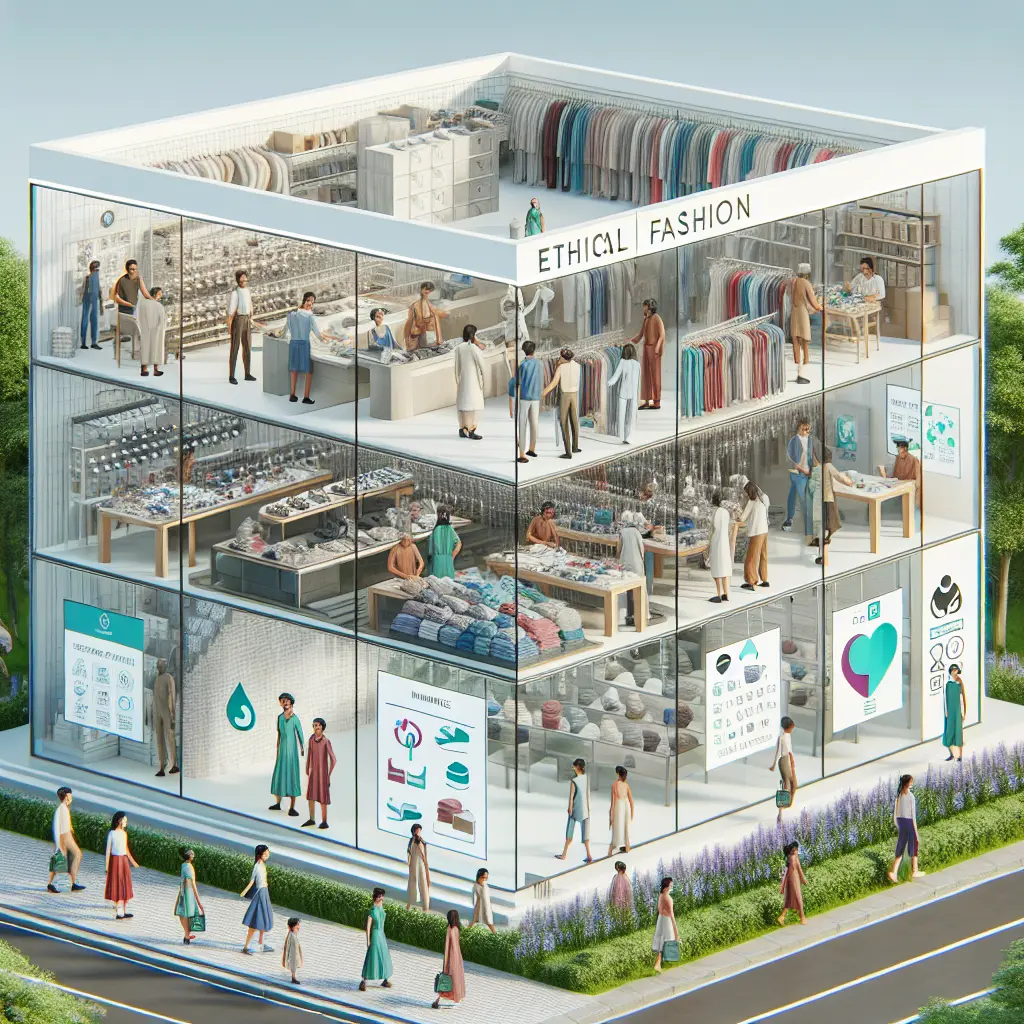
In recent years, the fashion industry has experienced a paradigm shift towards ethical fashion and sustainability. Central to this transformation is transparency, which has become a cornerstone for building trust between brands and consumers. Ethical fashion brands are increasingly leveraging transparency to demonstrate their commitment to sustainable fashion practices, ethical clothing, and transparent supply chains. As consumers become more discerning and conscious about their purchases, the demand for brands embodying ethical consumerism, fair trade fashion, and eco-friendly fashion principles continues to grow. But how exactly does transparency play a role in shaping ethical fashion brands?
Understanding Transparency in Fashion
Transparency in fashion involves open communication about production processes, labor practices, and sourcing materials. This openness allows sustainable fashion brands to be held accountable while empowering consumers to make informed decisions. The fashion transparency movement advocates for clear disclosures, urging brands to reveal their ethical manufacturing practices and establish a transparent supply chain that aligns with sustainable clothing values.
Recent Developments and Examples
Several recent developments highlight the growing emphasis on transparency within the fashion industry. For instance, the launch of a premier brand by Foreigner to promote Pashmina showcases how companies are aligning their business models with transparent and ethical practices. This initiative not only supports local artisans but also ensures that consumers are informed about the origins and authenticity of the products they purchase.
Moreover, the rise of second-hand stores, or op shops, reflects a significant shift in consumer behavior towards sustainable fashion. An article from The Guardian discusses how op shops have drastically changed, fueling anger among Aussies who feel these stores are straying from their original purpose. This change underscores the importance of transparency as consumers demand more accountability and clear communication regarding the sourcing and pricing of second-hand goods.
Transparency as a Market Differentiator
In a competitive market, ethical brand transparency offers a unique opportunity for differentiation. Brands that champion transparency can attract an audience that values integrity and social responsibility. This differentiation is crucial as ethical fashion practices become more mainstream.
One notable example is Patagonia, a brand renowned for its commitment to transparency in fashion. Patagonia has consistently demonstrated ethical manufacturing by providing detailed information about its supply chain and environmental impact. This level of transparency not only builds consumer trust but also sets a standard for other brands in the industry.
The Impact of Transparency on Consumer Trust
Transparency fosters trust, which is vital in nurturing long-term relationships between brands and consumers. A study by McKinsey & Company highlights that consumers are more likely to support brands that openly communicate their ethical practices. This trust translates into customer loyalty, ultimately driving sales and brand growth.
Furthermore, the shift towards ethical consumerism is reflected in the growing demand for fair trade fashion. Consumers are increasingly seeking assurance that their purchases contribute positively to social and environmental causes. Brands like Everlane have capitalized on this trend by providing transparent pricing and detailed information about their production processes, reinforcing their commitment to ethical fashion.
Challenges and Opportunities in Achieving Transparency
While transparency offers numerous benefits, it also presents challenges for ethical fashion brands. One significant challenge is the complexity of global supply chains. Ensuring transparency requires extensive documentation and monitoring, which can be resource-intensive. However, advancements in technology offer solutions to these challenges.
The rise of blockchain technology is transforming the fashion industry by enabling secure and transparent tracking of products throughout the supply chain. Companies like Provenance are leveraging blockchain to verify ethical manufacturing claims and provide consumers with verified information about product origins.
Future Trends: Embracing Technology for Greater Transparency
Looking ahead, technology will play an increasingly crucial role in promoting transparency within the fashion industry. Innovations such as digital tags and QR codes allow consumers to access detailed product information instantly. These technological advancements enhance transparency by providing real-time data on production processes, material sourcing, and labor conditions.
Additionally, integrating insights from salon management software trends can offer valuable tools for managing supply chains more efficiently. These technologies aid ethical fashion brands in maintaining transparent operations while optimizing resource allocation.
Conclusion: Embracing Transparency for a Sustainable Fashion Future
Transparency has emerged as a fundamental pillar in the transformation of the fashion industry toward sustainability and ethical practices. By openly communicating their production processes, sourcing, and labor practices, ethical fashion brands like Patagonia and Everlane are setting new standards and building consumer trust. This transparency not only differentiates them in a competitive market but also nurtures lasting relationships with consumers who value integrity and social responsibility.
However, achieving transparency is not without challenges. The complexity of global supply chains requires rigorous documentation and monitoring, yet advancements in technology, such as blockchain and digital tagging, offer promising solutions. These innovations empower consumers with verified information and real-time data, enhancing their ability to make informed purchasing decisions.
As the demand for fair trade and eco-friendly fashion continues to grow, transparency becomes an essential tool for brands to align with consumer values and drive positive change. By fostering accountability and open communication, transparency paves the way for a more ethical and sustainable future in fashion.
For brands and consumers alike, embracing transparency is more than just a strategic move—it's a transformative commitment to sustainability. As this movement gains momentum, it presents an exciting opportunity to redefine the fashion landscape and contribute positively to global social and environmental causes.
What are your thoughts on the role of transparency in fashion? Have you encountered brands that stand out for their ethical practices? Share your experiences and insights in the comments below. Let's continue this conversation and inspire each other to support brands that prioritize ethical consumerism.
Together, we can shape a more transparent and sustainable future in fashion.
Warm regards,
Fiona Sterling